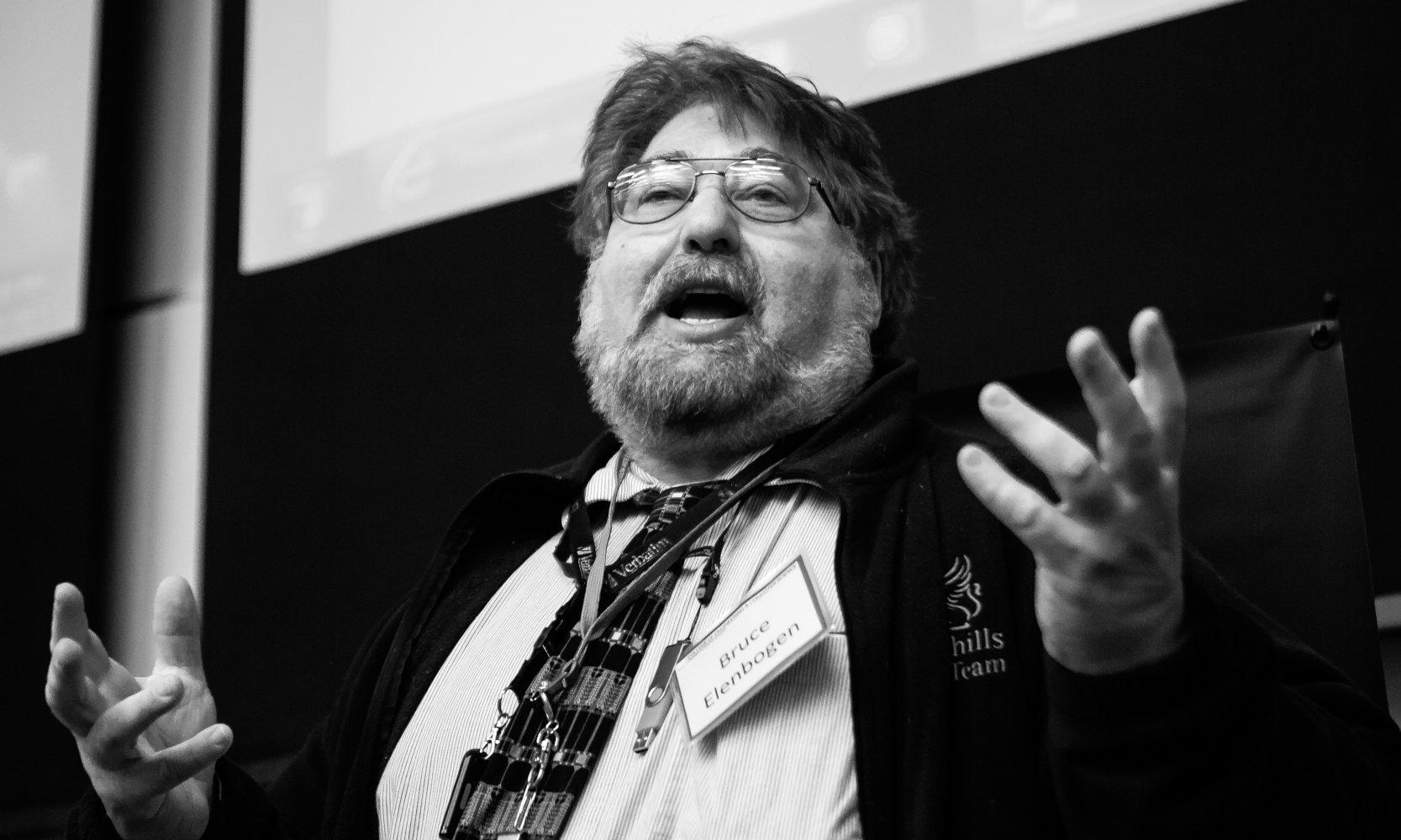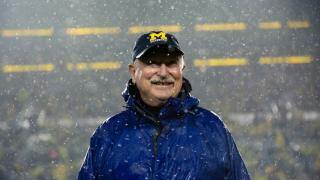
Many knew Bruce Elenbogen as the quintessential, old-school tough professor — the guy who, as his longtime friend and colleague Bruce Maxim lovingly put it, “failed more kids in intro computing than even I did.”
But even when such details played lead in stories about the 30-plus year veteran of the computer and information science department, there was usually a quick qualification on his toughness. Senior Jaycie Raby, who counted Elenbogen as a mentor and friend said those close to him knew he paired that gruffness with a big heart.
“He would basically dedicate all his free time to his students,” Raby says. “One time, I messaged him at 5 in the afternoon asking for help with an algorithm that I didn’t understand. And he’d message back at 9 p.m and then was video conferencing with me for two hours. Sometimes it would take forever for me to get something, and he’d laugh and say, ‘Jaycie, I don't have time for this!’ But then, he’d always make time.”
Associate Dean for Undergraduate Education Ghassan Kridli isn’t surprised by stories like that. In fact, Kridli remembers Elenbogen as someone with a broad talent for connecting with younger people.
“Anytime we discussed a K-12 outreach event, Bruce’s name was always at the top of the list of contributors,” Kridli says. “He was extremely knowledgeable but also had a great sense of humor. For example, he was famous for his ‘top 10 reasons why you want to be a computer scientist’ list. I remember one of the things he always mentioned to students was that ‘no computer science classes start before 11 a.m.’”
Kridli says Elenbogen, who was one of the founding members of his department, also left a mark on the college’s broader academic landscape. He had a particular passion for academic integrity — even developing his own computer-based method for detecting when students were recycling another person’s coding work. And he was also a member of the faculty senate and college curriculum committee, settings where Kridli witnessed both Elenbogen’s passion and open-mindedness.
“Because he was so knowledgeable and experienced and others valued his opinion, he could have thrown his weight around, but that was not his style. He was not rigid at all in his thinking. Those are the things that will make Bruce irreplaceable.”
Maxim says those kind words aren’t hyperbole. Elenbogen’s absence will be felt immediately across campus, including among the dozens of students whom he helped advise; and within the Association for Computing Machinery, the student organization he helped lead for the past 20 years. But Maxim said Elenbogen will be missed most deeply for the student-centered philosophy he brought to the college.
“People sometimes don’t understand how hard it is to be a good teacher in engineering,” Maxim says. “Research grants and publications, those are what get the praise. But you knew, for him, it was all about ‘the kids.’”
In fact, despite Elenbogen’s tough reputation, Maxim said those students who struck out the first time in his courses often came right back the next semester. “You’d think, ‘Why are they taking the class from the guy who just failed them?’” Maxim said. “But if you’re going to spend your tuition money a second time, you want the best. And he was the best.”






